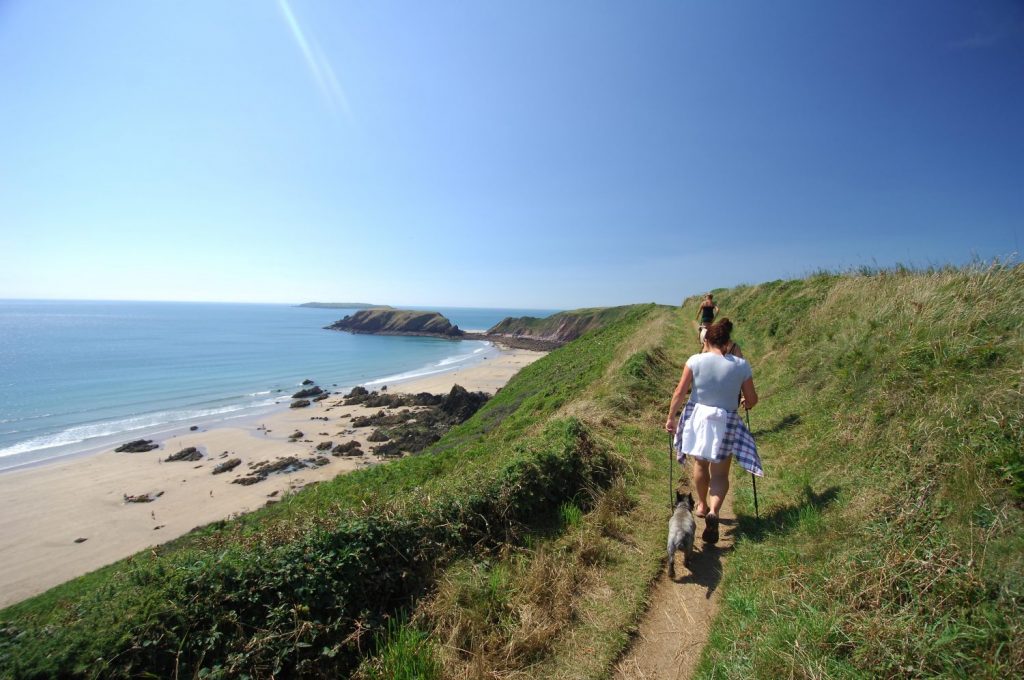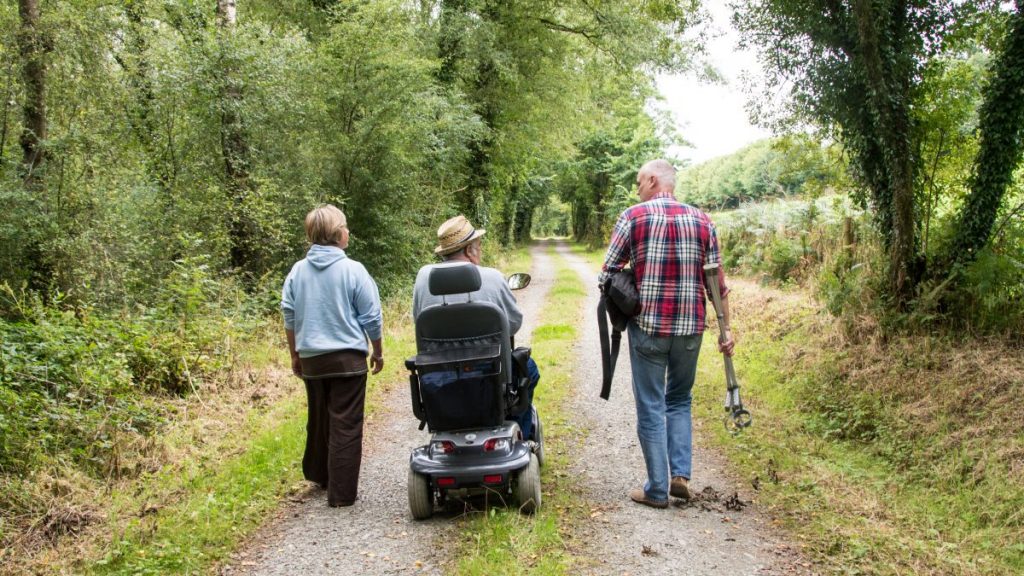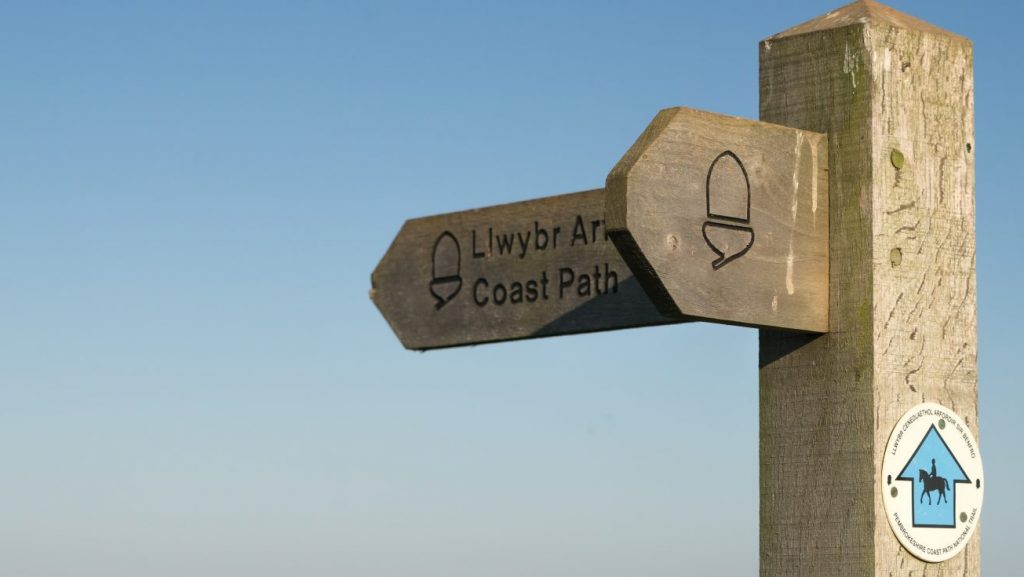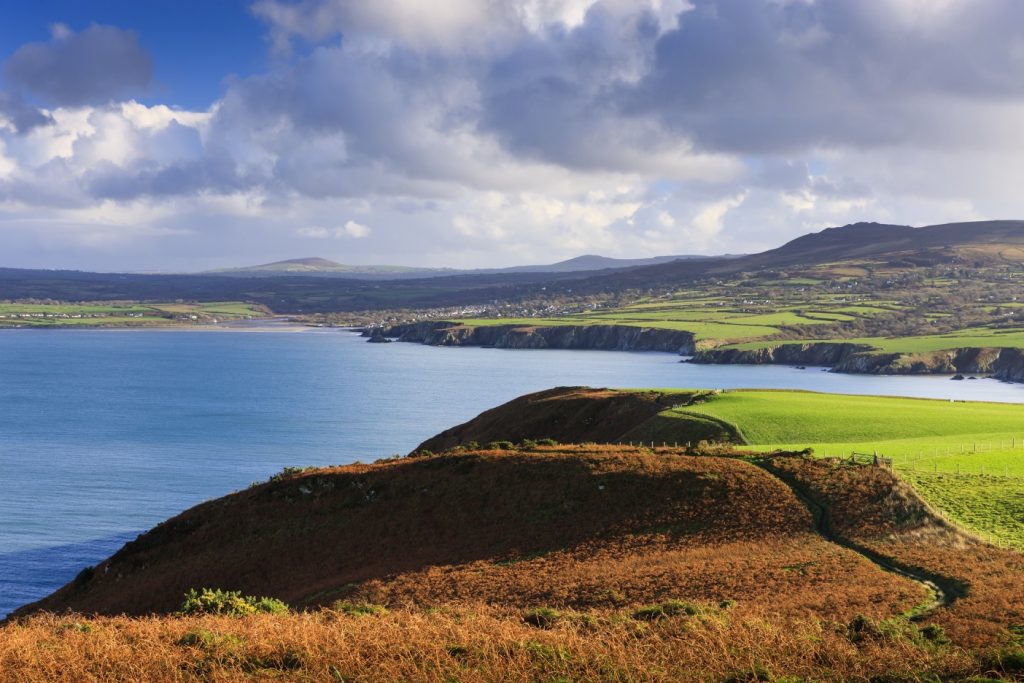DISTANCE/DURATION: 1.7 miles (2.7 km) 1 hour.
PUBLIC TRANSPORT: Service bus 343 Fishguard, Puncheston, Haverfordwest (Friday only).
CHARACTER: Fields and livestock, 0.6 mile (1.0 km) minor road walking.
This short walk is on the outskirts of the village of Puncheston in north Pembrokeshire.
The village itself has a number of interesting buildings, including 2 small chapels, a church, The Drovers Arms, and the listed cottages of Ty Newydd and White hart.
The welsh poet Waldo Williams was headmaster of the school during the second world war and one of his best known poems, ‘Ar Weun Casmael’ was written about the open common land surrounding the village.
A memorial to another poet, local boy Evan Rees, stands on the village square. As you follow this walk you will cross the old railway line which linked Maenclochog and Rosebush to Fishguard.
Built in the 1890s it was an important link for these rural communities in the days before the motor car.
The passenger service on the line stopped in 1937 and the line closed permanently in 1949.
Ahead of you as you walk is Mynydd Castlebythe or Mynydd Casfuwch. Nestled at the foot of this mountain are the parishes of Castlebythe and Morvil.
Unfortunately the village of Castlebythe failed to withstand the arrival of the Normans, who ordered all the families living at the foot of the mountain to move down country.
The word Morvil comes from the latin word used by the Normans for a village that has died.
Shortly you pass the old slate quarry. This opened before 1840 and was possibly worked into the twentieth century. All that remains now is a large spoil heap.
The land on either side of the track as you approach the old railway line, although looking nothing special, is one of the few places where the southern damselfly can be found.
A rare species nationally, Pembrokeshire is one of its strongholds with populations hanging on here and on the northern flanks of the Preseli hills.
Find this walk
Grid ref: SN008297
COUNTRY CODE!
- Enjoy the countryside and respect its life and work
- Guard against all risk of fire
- Leave gates and property as you find them
- Keep your dogs under close control
- Keep to public paths across farmland
- Take your litter home



